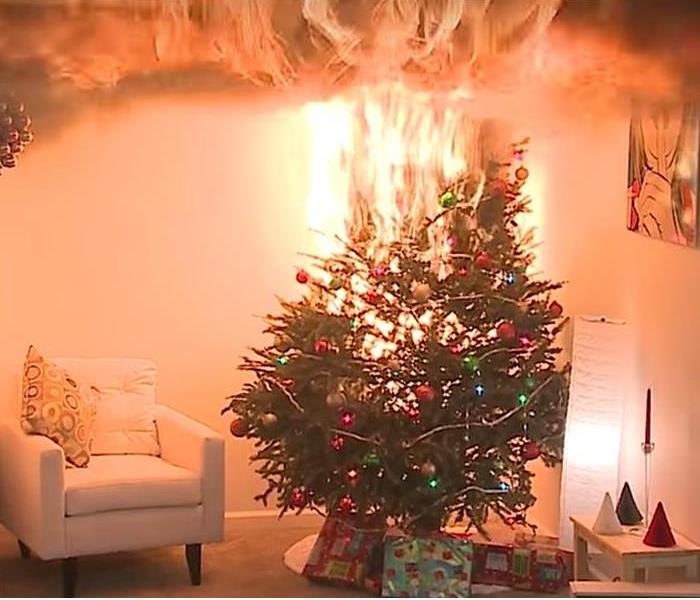Choosing the right Christmas tree can reduce your risk of a house fire
12/18/2017 (Permalink)
For many families in Litchfield County, the start of the Christmas season is marked by picking out a live Christmas tree from one of the area’s wonderful tree farms. For some, the annual ritual of the family venturing out into the cold together to find that perfect tree for their home, cutting it themselves and tying it to the roof of the car cannot be replicated with an artificial tree.
We appreciate a live tree ourselves however have also seen in over twenty years in the fire and damage business the devastation caused by a tree that has caught fire. When showcasing a live tree in your home, the combination of tree dryness, electrical malfunction with lights and poorly located heating sources can make for a deadly combination. If your holiday is not complete without a live tree, follow these safety precautions this month.
1. Choose your tree carefully: Fresh trees are less likely to catch fire, so look for a tree with vibrant green needles that are hard to pluck and don’t break easily from its branches. The best trees that retain moisture the longest are Fraser fir, Noble fir and Douglas fir. Eastern red cedar and Atlantic white cedar rapidly lose moisture and should be used only for a week or two.
2. Location, location, location: Always place your tree away from heat sources like fireplaces, radiators, candles, heat vents or lights, and keep the tree base filled with water to avoid a dry out.
3. Check your lights: Check old lights for any fraying of the wires. Do not overload light strands or electrical outlets. Also keep in mind that miniature and LED lights produce less heat than larger ones and will reduce the drying effect on trees.
4. Keep it watered: Choose a tree stand that holds at least a gallon of water and be sure to keep it full at all times.
5. Unplug your lights every night and when you leave the home. This will reduce the drying effect of lights and reduce the risk of the tree igniting unnoticed.
6. Take down the tree before it dries completely. A tree that is totally dry has needles turned a greenish gray and all needles and twigs break with a crack or crunch when crushed. In some tree species, you will see a needle drop but always do the crush test to be certain.





 24/7 Emergency Service
24/7 Emergency Service
